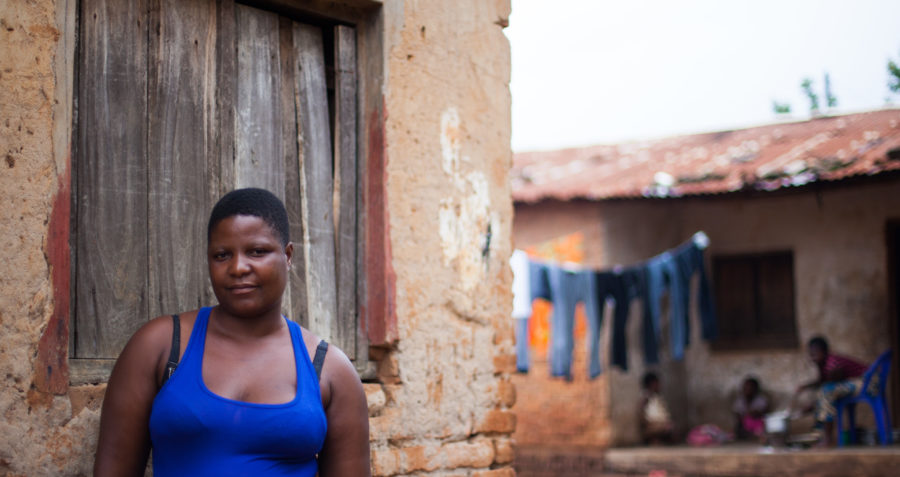U.S. anti-abortion policy hitting HIV services
 © Gemma Taylor for Frontline AIDS
© Gemma Taylor for Frontline AIDS
Brighton, March 8, 2019: Strict anti-abortion funding rules implemented by U.S. President Donald Trump are causing chaos and limiting access to vital HIV services, according to a study published by Frontline AIDS on International Women’s Day.
Researchers in Cambodia and Malawi were told how funding cuts as a result of the Mexico City Policy, which prevents organisations receiving U.S. funds from providing or promoting abortion, have caused disruption to HIV programmes, created an environment of mistrust, confusion and isolation among civil society organisations, and compromised access to HIV prevention, testing and treatment services for marginalised people.
Key findings in the report, which was funded by the Swedish International Development and Cooperation Agency (SIDA), showed that:
- An HIV non-governmental organisation (NGO) in Malawi that offered family planning services as well as cervical cancer and sexually transmitted infection screening for sex workers had been forced to close;
- Marginalised people, such as sex workers and men who have sex with men, felt unable to access vital HIV and family planning services. Instead of tailored services being provided to them and others like them, they were forced to use government health services, where many feared they would face stigma and discrimination. In Malawi, a mobile sexual health clinic operating in bars used by sex workers and offering a range of HIV and family planning services was forced to close due to lack of funds.
- Sex workers in Cambodia living with HIV experienced interruptions in access to antiretroviral treatment as NGOs were forced to scale back outreach services due to lack of funds.
- Condom distribution for marginalised populations in Cambodia has been severely impacted. In some cases, where sex workers are unable to afford condoms, they rely on the clients providing them, sometimes resulting in the clients insisting on sex without a condom.
- Coalitions of NGOs providing a full range of HIV and sexual health services for marginalised people have become strained and, in some cases, disintegrated. Some NGOs have been forced to withdraw from coalitions after signing the policy and being unable to offer the range of services previously provided, while others who have refused to sign up are unable to offer services because of funding cuts.
- Trust has broken down between service providers and patients as services that have been offered free-of-charge for years are now either paid for or cut altogether.
“The Mexico City Policy and its chaotic effects are having a devastating impact on the lives of marginalised people around the world,” said Christine Stegling, executive director of Frontline AIDS. “President Trump’s decision to expand the policy has led to further confusion and even fewer vital services for people who need them most. The findings of this report paint a worrying picture, confirming our concerns that people’s health and lives are being put at risk by this ideologically-driven policy.”
The policy has also directly affected the lives of health workers. Some outreach workers said they met with clients offsite in their own time to enable them to properly discuss all care options available, which they were no longer able to do in their professional capacity. Other NGOs reported significant cuts to staff numbers, including one which had seen a 37% reduction in employees.
“The findings of our study confirm much of what we have been hearing from colleagues on the ground over the past two years,” said Luisa Orza, gender lead at Frontline AIDS. “The policy adds a further layer of complexity and uncertainty for NGOs operating in already challenging circumstances and, worryingly, given the lack of data in these settings, the real human and financial cost of the policy may not become fully clear until it is too late for countries and donors to act.”
The Mexico City Policy was first announced in 1984 by then-US President Ronald Reagan at the International Conference on Population and Development, held in Mexico City. The policy requires foreign NGOs to declare that they will not “perform or actively promote abortion as a method of family planning” with any of their funds (including funds not received from the US) as a condition for receiving assistance from the US government.
The policy, often referred to as the Global Gag Rule by critics, was repealed in 1993, reinstated in 2001 and repealed again in 2009. In 2017, President Trump signed an executive order reinstating the Mexico City Policy under the title ‘Protecting Life in Global Health Assistance’. The policy was expanded to include not only global family planning assistance provided by the US government (representing $575 million in 2016) but also global health assistance, including HIV, totalling $8.8 billion, a 16-fold increase in funding covered by the policy.
In February, the Trump Administration issued the final version of a rule replicating the Mexico City Policy in the US. Under the rule, domestic organisations that provide or refer people for abortions will be barred from applying for a share of the $286 million Title X federal family planning programme.
ENDS
Notes to Editors
The fieldwork for the Mexico City Policy study was carried out by Watipa
Please follow this link to view the full report.
For further information on this press release, please contact Rob Kelly on 07421 829200 or rkelly@frontlineaids.org
About Frontline AIDS
Frontline AIDS wants a future free from AIDS for everyone, everywhere. Around the world, millions of people are denied HIV prevention, testing, treatment and care simply because of who they are and where they live.
As a result, almost 2 million were infected with HIV in 2017 and almost 1 million died of AIDS-related illness.
Together with partners on the frontline, we work to break down the social, political and legal barriers that marginalised people face, and innovate to create a future free from AIDS.
Please visit our website to learn more.
Tags
AbortionGender equalityGlobal Gag RuleSexual and reproductive health and rights (SRHR)

